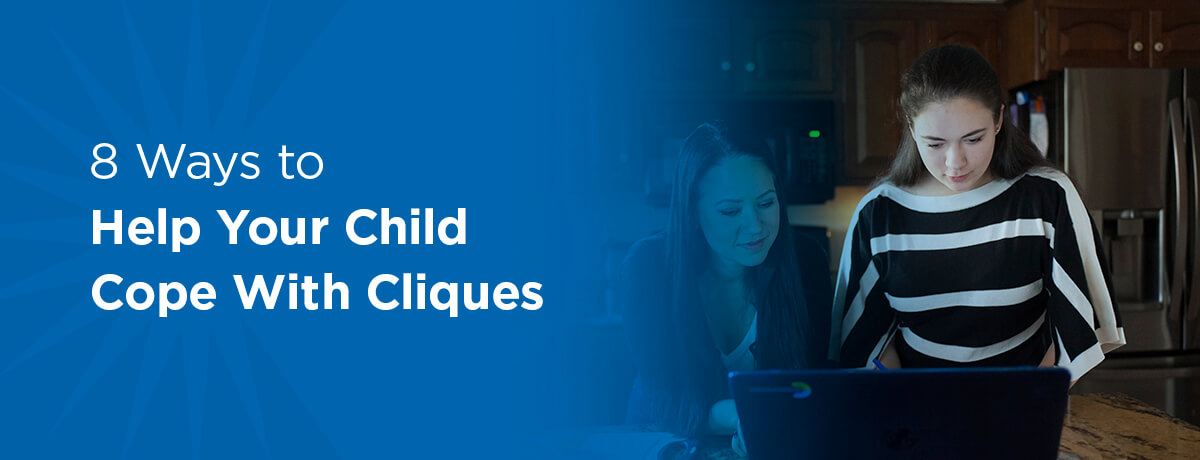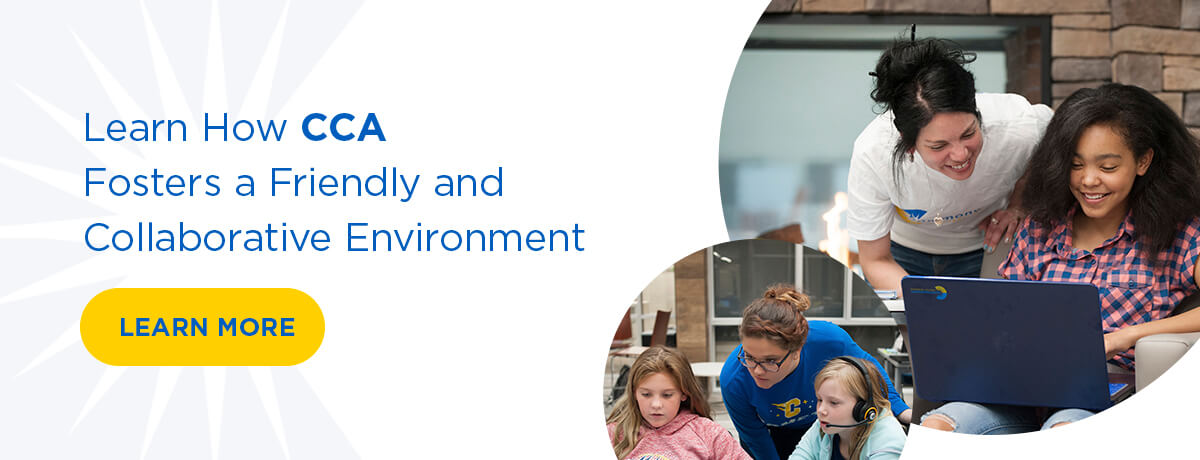For many students, cliques are an unfortunate byproduct of making friends. These groups tend to be controlling and destructive, discouraging kids from making new friends and pressuring them to do things they don’t want to do — all classic signs of unhealthy relationships. Cliques aren’t just “the popular girls” in high school. Boys, young kids, and less popular kids can also form cliques.
If your child is dealing with cliques or bullying, you’re probably wondering how you can help them through it. Let’s look at some ways to help your child with friendship issues and cliques.
8 Dos and Don’ts for Helping Your Child With Friendship Issues
Friendship problems can involve a wide range of emotions, from anger to embarrassment to sadness. When helping a child with friendship issues, be patient and understanding. Remember that they’re still learning how to deal with relationship problems and navigate the difficulties of compromising, negotiating, and making up after a fight. From changing how you talk to them to providing support, here are some tips for helping your child deal with challenging social situations.
1. DO Empathize With Your Child
Let them know you’re listening by showing empathy. Express that you understand the emotions they’re going through with phrases like, “You must have felt so upset when she said that,” or “I’m glad you could stay calm after getting mad at him.”
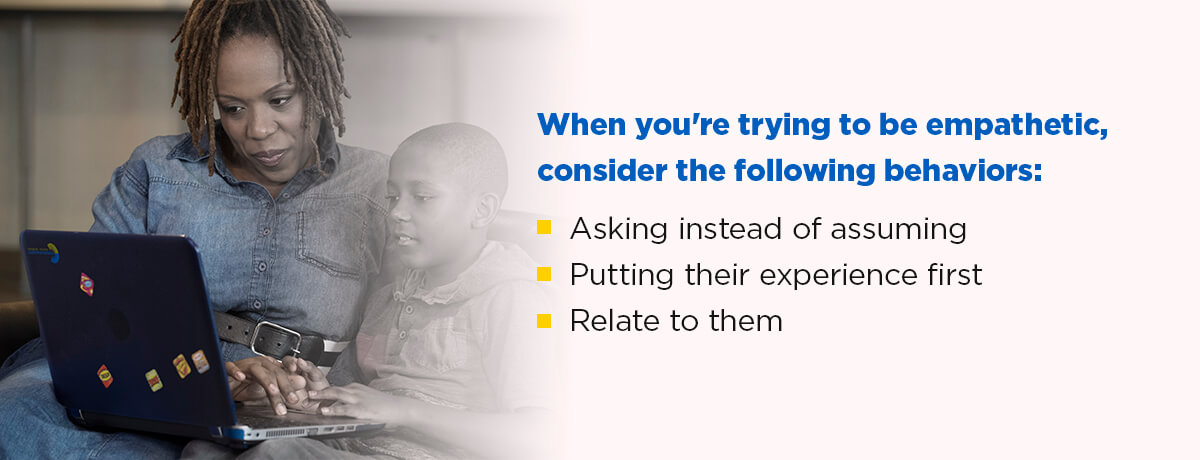
When you’re trying to be empathetic, consider the following behaviors:
- Asking instead of assuming: Don’t assume you know what your child is feeling. Asking helps you clarify what’s going on and allows them to verbalize their feelings.
- Putting their experience first: You might react strongly to whatever your child tells you, but being empathetic means putting their feelings first. That doesn’t mean you can’t have your own opinion, but try to look at the situation from their perspective before reacting.
- Relate to them: If you can, relate to their situation with a story of your own. Remind them they’re not alone and that you understand what they’re going through.
2. DON’T Automatically Assume Your Child Is the Victim
It’s easy to side with your child, but sometimes there’s more to the story. They might be withholding some information or have misunderstood the situation. After all, they’re still learning how to process and deal with conflict. Ask questions about the situation and try to fill in any blanks. Be open to the possibility that your child might come off as the bad guy.
If your child contributed to the problem, don’t be accusatory. Keep the conversation open and understanding, and encourage them to take the other person’s perspective to see how their behavior might look through someone else’s eyes. Remind them that it’s okay to mess up sometimes.
3. DO Keep the Conversation Open by Regularly Asking About Their Friends and Friendships
Friendships come and go, especially for young children. Encourage open communication by letting your child know that you’re there to help. Stay involved and ask about their relationships regularly. If you notice that they suddenly stop talking about their best friend, ask questions. They may have had a fight or a falling out that you can help them work through. Regularly discussing their relationships lets them know you care and opens up a line of communication if they ever need to talk.
4. DON’T Spy on Your Child
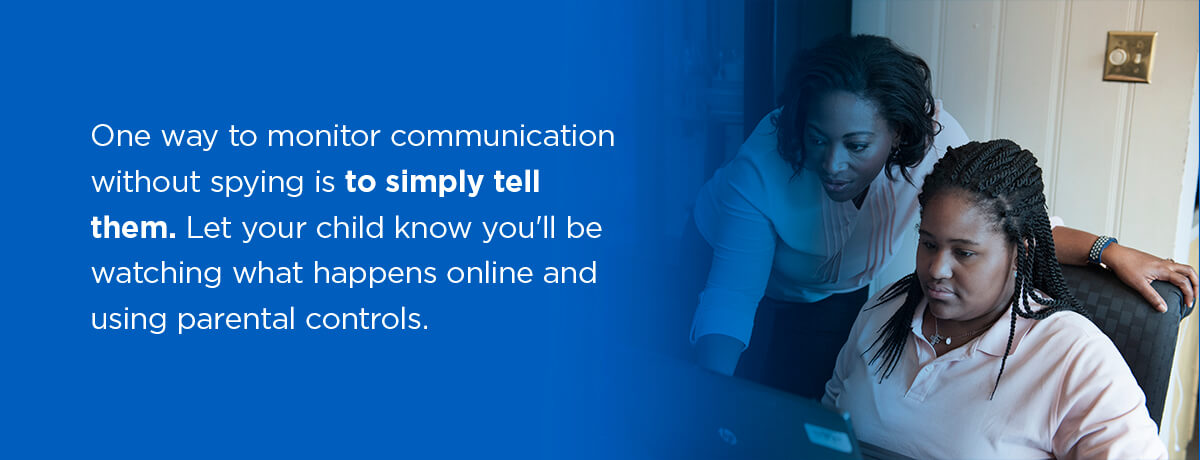
One of the most important parts of working through relationship issues is being a trusted confidant for your child. If you break that trust and spy on their communications — such as texts or journal entries — without their consent, you might drive a wedge between the two of you. One way to monitor communication without spying is to simply tell them. Let your child know you’ll be watching what happens online and using parental controls. If you think something is going on, your child can expect you to check in without breaking their trust.
If a child isn’t opening up about cliques or bullying, try to get them in a room with someone they’ll talk to that can help them, like a trusted relative or a counselor.
5. DO Ask Questions to See if You Can Help
It might be tempting to immediately offer a solution or solve the problem in your own way, but remember that your child is learning how to navigate relationship problems independently. Instead, ask questions about whether they want or need your help. You can ask if they want your opinion or if they need help identifying a solution. Let them know that you’re there for them and can guide them in the right direction.
6. DON’T Attempt to Solve the Situation on Their Behalf
You may want to protect your child by simply solving the problem yourself. Whether you want to message the other child’s parent or go straight to the teacher, resist the urge if the problem doesn’t present immediate danger. You could make things worse and take away a valuable learning opportunity for your child. Instead, help them work through it by brainstorming and exploring solutions. Only step in as a last resort, such as when their safety is at risk.
7. DO Discuss Healthy Relationship Habits and Signs of Toxic Relationships
Take some time to teach your child that not all relationships are good ones. They won’t be friends with everyone they meet, and some behaviors can indicate an unhealthy relationship. Help your child learn what to look for and how to identify whether the friendship is worth fixing.
Show them some signs of a good friendship like:
- Respecting each other’s privacy and space, including friendships with other people.
- Taking responsibility for one’s actions.
- Feeling comfortable expressing opinions, thoughts, and problems.
- Being able to compromise to resolve conflicts.
- Feeling physically safe around the other person.
- Having the freedom to stay true to one’s likes, dislikes, and morals.
Meanwhile, an unhealthy relationship might involve traits like:
- A lack of support or respect.
- Poor communication practices like yelling and criticism.
- Excessive envy or jealousy.
- Controlling behaviors.
8. DON’T Ignore Signs of Bullying or Abusive Friendships
Kids aren’t always forthcoming about the things that bother them. They may hide their problem for various reasons, like wanting to solve the issue independently, avoiding backlash from a bully, or feeling embarrassed. As a parent, you need to look out for the many signs of bullying and abusive behaviors. If you see them, take action. Talk to your child or their teacher right away to investigate the issue.
Again, don’t break any boundaries unless absolutely necessary, but watch for behaviors like:
- Frequent headaches, stomachaches, or faked illnesses.
- Changes in eating habits, like binge eating or skipping meals.
- Nightmares or difficulty sleeping.
- Avoidance of social situations or loss of friends.
- Lost or destroyed items, like clothes and electronics.
- Decreased self-esteem or feelings of helplessness.
- Declining grades and interest in schoolwork.
There’s also the possibility that your child is the one bullying another student. Some signs that can indicate a child is bullying others include:
- Frequent physical or verbal fights.
- Increased aggression.
- Frequent visits to the principal’s office or detention.
- Having friends who are bullies.
- Unexplained new belongings.
- A refusal to accept responsibility for their actions.
- Concerns about popularity and reputation.
How to Encourage Healthy Friendships
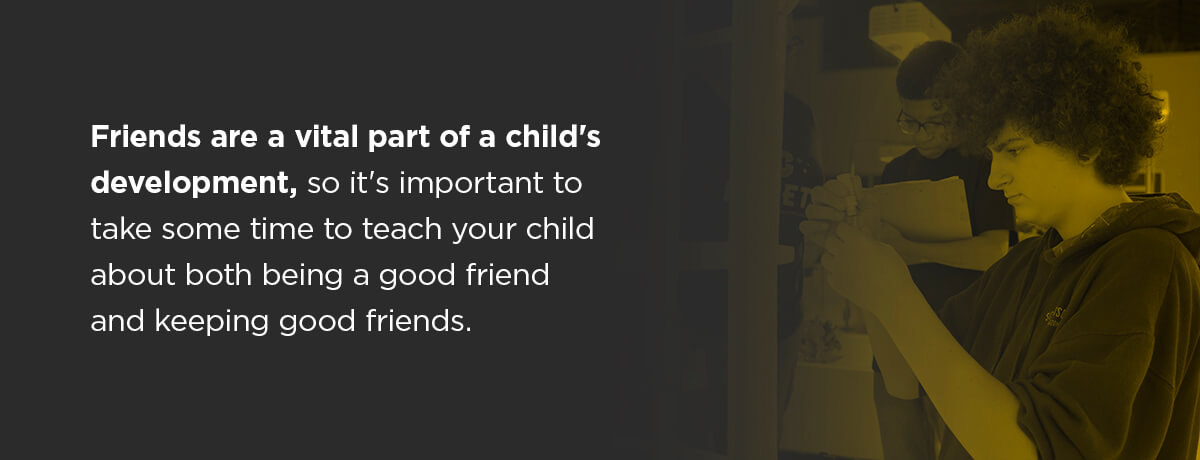
If your child is having trouble making friends or dealing with toxic relationships and cliques, some changes may be in order. They might need to end an unhealthy friendship, practice conflict resolution skills, or meet some new people. Friends are a vital part of a child’s development, so it’s important to take some time to teach your child about both being a good friend and keeping good friends.
Here are some things your child should keep in mind when trying to cultivate healthy friendships:
- Find the right fit: No one should have to change themselves to make friends. Encourage your child to look for worthwhile friendships rather than simply trying to fit in. Have them stick to their principles and interests and make sure they know the difference between compromise and being walked over. They shouldn’t need to feel embarrassed about their interests or teased for who they are.
- Keep a diverse social circle: Encourage your child to maintain friendships with a broad range of people from different backgrounds. That means making friends outside of school, friends in different age groups, and friends with other interests. They can offer unique perspectives and help your child learn more about the world.
- Find like-minded people: This is an excellent strategy for anyone looking to make friends. Try enrolling your child in clubs or sports that they enjoy where they can meet others with a common interest.
- Take responsibility for your actions: Make sure your child understands the give and take required for a healthy friendship. They’ll need to find a balance between being sensitive to the needs of others and standing up for themselves. Remind them that good friends respect each others’ needs, regardless of their differences.
Socialization Opportunities at CCA
CCA may be an online school, but we never skimp on socialization. We know how important it is to a child’s development, which is why we offer plenty of opportunities for kids to chat, play, and learn together. A flexible curriculum means students never have to worry about schedule conflicts with their classes. If you’re wondering how to help your child make friends at an online school, CCA’s activities are ideal for meeting new peers.
Some socialization opportunities at CCA include:
- Field trips: Each year, students can choose from over 700 exciting, hands-on field trips that get them talking and playing with new friends. From a day at a trampoline park to exploring a petting zoo, kids can start forming healthy relationships while they play and learn in engaging new settings.
- School clubs and activities: CCA offers dozens of clubs where students can meet with others who share their interests. If you don’t see a club that reflects your child’s interests, you can even help start one that does! From poetry writing to science experiments to volunteering, these clubs are a great way for kids to socialize and explore their hobbies.
- Mobile classrooms: CCA also offers unique mobile classrooms. We take these classrooms on the road for the whole school year, offering hands-on learning through indoor and outdoor activities like astronomy observations and water and soil testing. Kids can meet up with other students and make new friends through the mobile classroom.
Our online program is packed with the kinds of socializing that students need to thrive, so it’s easy to meet new people in safe, engaging environments.
How CCA Stands Up to Bullying
Bullying is one of the top reasons students and families choose cyberschools. It can make in-person school feel like a scary place and stifle the joy of learning. Unsurprisingly, it is associated with issues like depression and anxiety, health complaints, decreased academic achievement, and attendance issues. Creating an environment that fosters healthy development and education requires putting a stop to bullying as soon as it appears.
The online environment can be especially helpful for children dealing with social problems and bullying. It puts them in a more controlled setting, where they can choose who they engage with and when. They can avoid cliques and more easily distance themselves from bullies while receiving a top-tier education. With the right program, students also don’t have to sacrifice social opportunities that help them make new friends.
Cyberbullying is always a threat, but CCA is always on guard. We have a wealth of resources available for students who might be struggling, such as:
- Counseling support: Our robust school counseling services are available for all CCA students, providing a trusted, reliable source to help them navigate these complex situations.
- The Student Assistance Program (SAP): Our teachers, administrators, and support staff are well-trained in identifying bullying and will bring in a certified case manager when necessary. This case manager can connect students and families with resources like individual counseling and support groups.
- Rapid response policy: CCA is fully committed to promptly responding to any bullying concerns you might share with us. You can even go directly to the SAP to get assistance. We do not tolerate bullying in any form and take these situations seriously. Our zero-tolerance policy involves cutting bullying off at the source. From there, we help the bullied child heal and return to feeling safe and secure.
Learn How CCA Fosters a Friendly and Collaborative Environment
Whether your child is dealing with cliques in elementary school, middle school or high school, CCA’s program offers all of the resources you need to put a stop to it. Our flexible online learning gives students more control, while our many socialization opportunities can help them make new, healthy relationships. If you need any help, our attentive teachers and family mentors are there, too.
Learn more about the CCA community online, or reach out to us for more information!



